
Final read-out of progression-free survival data from the ALTA-1L trial indicates significant benefit of brigatinib versus crizotinib for patients with ALK-positive non–small cell lung cancer who have not previously received an ALK inhibitor.

Your AI-Trained Oncology Knowledge Connection!


Final read-out of progression-free survival data from the ALTA-1L trial indicates significant benefit of brigatinib versus crizotinib for patients with ALK-positive non–small cell lung cancer who have not previously received an ALK inhibitor.

Acceptable safety was noted with the addition of darolutamide to androgen deprivation therapy and resulted in infrequent extra adverse effects versus placebo in men with nonmetastatic castration-resistant prostate cancer.

Patients with low-grade upper tract urothelial carcinoma achieved a long period of durable response after undergoing treatment with UGN-101.

Yoga not only yields improvements in physical, mental, and sexual wellbeing, but it may also result in reduced inflammation and antitumor responses in men with prostate cancer.
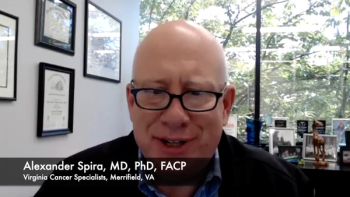
CancerNetwork® sat down with Alexander Spira, MD, PhD, FACP, at the 2021 World Conference on Lung Cancer to talk about COVID-19 and immediate changes that took place during the pandemic.
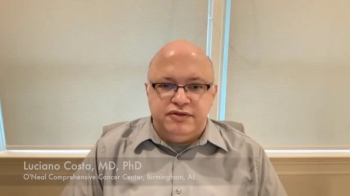
CancerNetwork® sat down with Luciano Costa, MD, PhD, at the 2021 International Myeloma Workshop to talk about the decision to start the phase 2 MASTER trial for multiple myeloma.

Ravi Madan, MD, discusses clinical findings utilizing PET imaging and Tc99 scans in patients with metastatic castration-resistant prostate cancer who are being treated with enzalutamide

Patients with early-stage non–small cell lung cancer experienced a survival benefit with adjuvant atezolizumab vs best supportive care.

Patients with metastatic castration-resistant prostate cancer with or without homologous recombination repair gene mutations may derive benefit from olaparib and abiraterone acetate, according data from the phase 3 PROpel trial.

Patients with high-risk polycythemia vera had a worse survival probability at 4 years compared to patients with low-risk disease.

CancerNetwork® sat down with Alexander Spira, MD, PhD, FACP, at the 2021 World Conference on Lung Cancer to talk about future indications of mobocertinib.

CancerNetwork® sat down with David O’Malley, MD, at the 2021 European Society for Medical Oncology to talk about the OReO trial and how these findings impact what’s already known about PARP inhibitors for the treatment of ovarian cancer.

The FDA approved the use of the Pfizer COVID-19 vaccine for patients of a specific age, at risk jobs, or with serious health conditions.

Patients with relapsed/refractory unresectable or metastatic melanoma may derive benefit from alrizomadlin, which has received a fast track designation from the FDA.
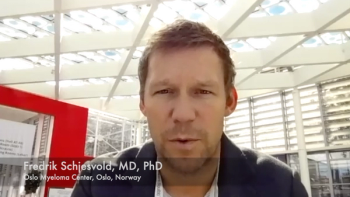
CancerNetwork® sat down with Fredrik Schjesvold, MD, PhD, at the 2021 International Myeloma Workshop to discuss key data that read out from the OCEAN trial for relapsed/refractory multiple myeloma.

Results from the phase 3 eXalt3 study indicated that ensartinib led to a longer progression-free survival and intracranial response rate compared with crizotinib for patients with ALK-positive non-small cell lung cancer.

CancerNetwork® spoke with Michael Schweizer, MD, at the 2021 ESMO Congress about his research into the combination of olaparib plus bipolar androgen therapy for patients with castration-resistant prostate cancer.

A phase 2 trial did not find a significant benefit to progression-free survival with regorafenib in patients with advanced or metastatic chrodoma.

Patients with chronic graft-versus-host disease who have received prior therapy can now receive treatment with ruxolitinib following its approval by the FDA.

Findings from the PACIFIC-R trial indicated that the real-world progression-free survival benefit of durvalumab was higher vs the median progression-free survival reported in the durvalumab arm of the phase 3 PACIFIC trial in unresectable stage III non–small cell lung cancer.

Results from the phase 3 NINJA trial indicated that chemotherapy agents such as gemcitabine or pegylated liposomal doxorubicin yielded better survival outcomes vs nivolumab among patients with platinum-resistant ovarian cancer.

An association was seen between baseline HER2 expression levels and the antitumor activity of fam-trastuzumab deruxtecan-nxki for patients with HER2-positive, metastatic colorectal cancer.
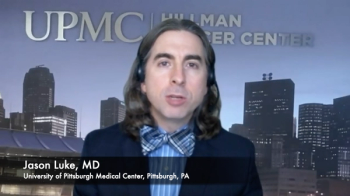
CancerNetwork® sat down with Jason Luke, MD, at the 2021 European Society for Medical Oncology Congress to talk about the latest developments in the use of immunotherapy for metastatic disease.

Adavosertib demonstrated a 65% risk reduction in disease progression and death for patients with TP53-/RAS-mutant metastatic colorectal cancer following first-line chemotherapy.
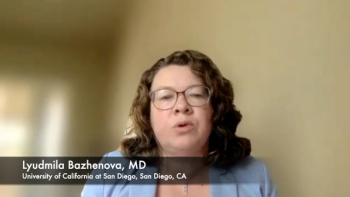
CancerNetwork® sat down with Lyudmila Bazhenova, MD, at the 2021 World Conference on Lung Cancer to talk about immunotherapy response in patients with EGFR exon 20 insertion mutations.

Patients with extensive-stage small cell lung cancer (ES-SCLC) derived overall survival benefit from a combination of durvalumab and chemotherapy.
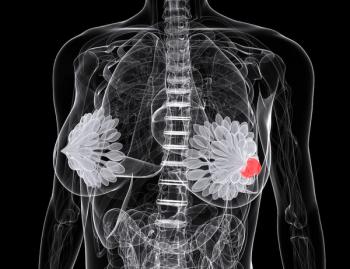
Consistent Ki67 suppression with giredestrant was noted in a phase 2 trial versus anatrozole.

Patients with advanced non–small cell lung cancer receiving sitravatinib plus nivolumab combination had promising objective responses during a post-hoc analysis of a phase 2 trial.

Patient with advanced renal cell carcinoma who were treated with nivolumab and ipilimumab experienced a long-term survival benefit that was superior to sunitinib.

The toxicity profiles of PD-1 and PD-L1 inhibitors displayed unique characteristics when combines with other agents such as chemotherapy, targeted therapy, and immunotherapy.